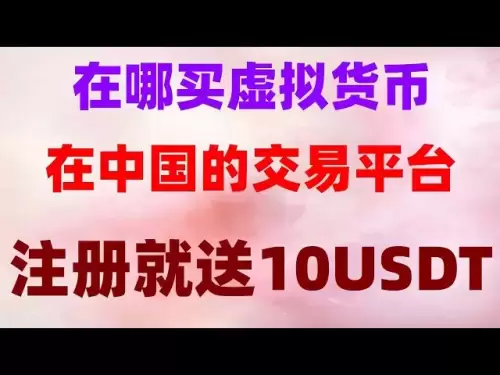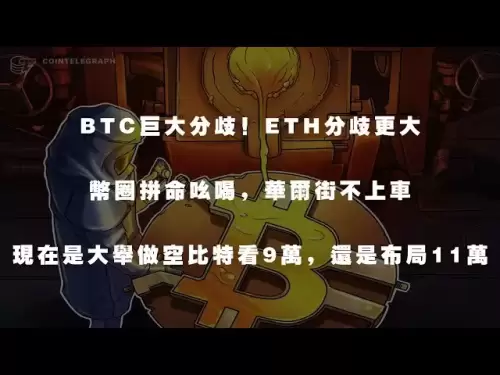 |
|
 |
|
 |
|
 |
|
 |
|
 |
|
 |
|
 |
|
 |
|
 |
|
 |
|
 |
|
 |
|
 |
|
 |
|
Cryptocurrency News Articles
Sign Protocol: Building the Foundation of Trust
May 12, 2025 at 11:38 am
Under the accelerated impact of the digital wave, the way the world operates is being redefined almost every day.

Sign is a protocol that solves the integration of identity systems, asset allocation and regulatory rules across different institutions. It aims to create a trust foundation that can be accepted by sovereign states, multinational companies, and even pure Web3 communities.
Sign is building a standard, programmable, and cross-chain deployable trust layer protocol. This protocol can meet the basic needs of Web3 and has an identity and distribution system that is highly compatible with the real world. Sign's products are used by governments, institutions and companies in various fields.
Sign is a protocol that solves the integration of identity systems, asset allocation and regulatory rules which are independently operated by different institutions. In the accelerated impact of the digital wave, the way the world operates is being redefined almost every day. So, how can we establish a set of global standards between the identity systems, asset allocation and regulatory rules that operate independently within each sovereign state to break through the "glass ceiling" of global collaboration caused by data silos, inconsistent standards and high compliance costs?
To break this ceiling, we need a trust foundation that can be accepted by sovereign states, multinational companies, and even pure Web3 communities. Sign is doing just that:
• Sovereign identity: Through the Sign Protocol, official credentials such as passports and visas are securely moved to the chain, helping the government unleash the potential of digital government affairs within a compliance framework.
• TokenTable Standard: modularizes and templates the complex token issuance, unlocking, and distribution processes, allowing companies and project parties to issue tokens like calling an API, while ensuring regulatory traceability.
In short, Sign hopes to move "demand scenarios that need to be easily verifiable on a global scale" to the blockchain through unified standards, from identity verification to asset ownership, so that individuals, businesses and governments can enjoy the convenience of global collaboration.
Project Overview
SIGN is currently involved in the construction of multiple national digital infrastructures. Its products have been deployed in the UAE, Thailand and Sierra Leone, and are planned to cover more than 20 countries and regions, including emerging digital government practice hotspots such as Barbados and Singapore.
In terms of product indicators, the number of Sign Protocol credential templates has achieved an order of magnitude growth. The total cumulative distribution of the TokenTable platform has exceeded US$4 billion, covering more than 40 million on-chain wallet addresses. There are more than 200 actual service projects, covering multiple mainstream ecosystems including Starknet, ZetaChain, and Notcoin.
The capital market's recognition of it is gradually being realized. Sequoia Capital participated in the investment across regions, and YZi Labs also led the subsequent rounds. The Sign project has achieved an annual revenue of 15 million US dollars, becoming one of the few participants in the identity and token infrastructure track with a real revenue model, showing strong market competitiveness and development potential.
Project Vision
As global collaboration continues to evolve, Sign has proposed the concept of a "super-sovereign database", attempting to use blockchain technology to create a globally verifiable and auditable information structure system, promote the comprehensive integration of on-chain governance, on-chain economy and on-chain identity, and become the underlying engine for global digital collaboration.
Core Positioning
Sign's core architecture focuses on two key modules: identity authentication infrastructure and asset distribution infrastructure. Based on this, Sign is building a standardized, programmable, cross-chain deployable trust layer protocol. This protocol can meet the basic needs of Web3 and has an identity and distribution system that is highly compatible with the real world, providing reliable guarantees for achieving trust and value transfer on a global scale.
Technical Deconstruction: Sign's Underlying Architecture and Product Matrix
Based on the Sign Protocol and its derivative products (TokenTable, SignPass, EthSign), Sign connects the three major engines of identity, services, and assets on the chain, leading the construction of the next generation of digital social infrastructure.
Sign Protocol: A Full-Chain Authentication Protocol
Sign Protocol has excellent scalability and flexible deployment capabilities. The system supports multi-chain deployment and can be deployed locally on the sovereign chain according to regulatory compliance requirements. At the same time, it uses Arweave to achieve off-chain redundant backup of data to ensure data security and durability. The index layer is provided with unified management capabilities by SignScan, which supports standardized query and verification of on-chain credentials, greatly improving the convenience and efficiency of operations.
The protocol supports local contract interaction mechanisms and remote deployment architectures, and can access multiple identity sources in Web2 and Web3. By adopting asymmetric encryption and zero-knowledge proof mechanisms, Sign not only provides strong identity authentication capabilities, but also ensures the complete protection of user privacy, allowing users to enjoy convenient services without worrying about personal information leakage.
TokenTable: Digital Asset Distribution Engine
TokenTable is the most comprehensive digital asset distribution engine in the industry. The Unlocker module provides a fully on-chain trusted token unlocking solution, suitable for complex unlocking logic such as linear release and event triggering. Merkle
Disclaimer:info@kdj.com
The information provided is not trading advice. kdj.com does not assume any responsibility for any investments made based on the information provided in this article. Cryptocurrencies are highly volatile and it is highly recommended that you invest with caution after thorough research!
If you believe that the content used on this website infringes your copyright, please contact us immediately (info@kdj.com) and we will delete it promptly.
-

- Bitcoin Continues to Dominate the Digital Asset Space, Maintaining Its Position as the Most Established and Widely Adopted Cryptocurrency.
- May 15, 2025 at 03:15 pm
- Bitcoin continues to dominate the digital asset space, maintaining its position as the most established and widely adopted cryptocurrency.
-

-

-

-

-

-

-

-
























![[Ronnie Trading Guide]-2025.5.15-Bitcoin continues to consolidate at a high level, and only patient investors will get a return on time~ [Ronnie Trading Guide]-2025.5.15-Bitcoin continues to consolidate at a high level, and only patient investors will get a return on time~](/uploads/2025/05/15/cryptocurrencies-news/videos/ronnie-trading-guidebitcoin-continues-consolidate-level-patient-investors-return-time/682574fd46a42_image_500_375.webp)





































